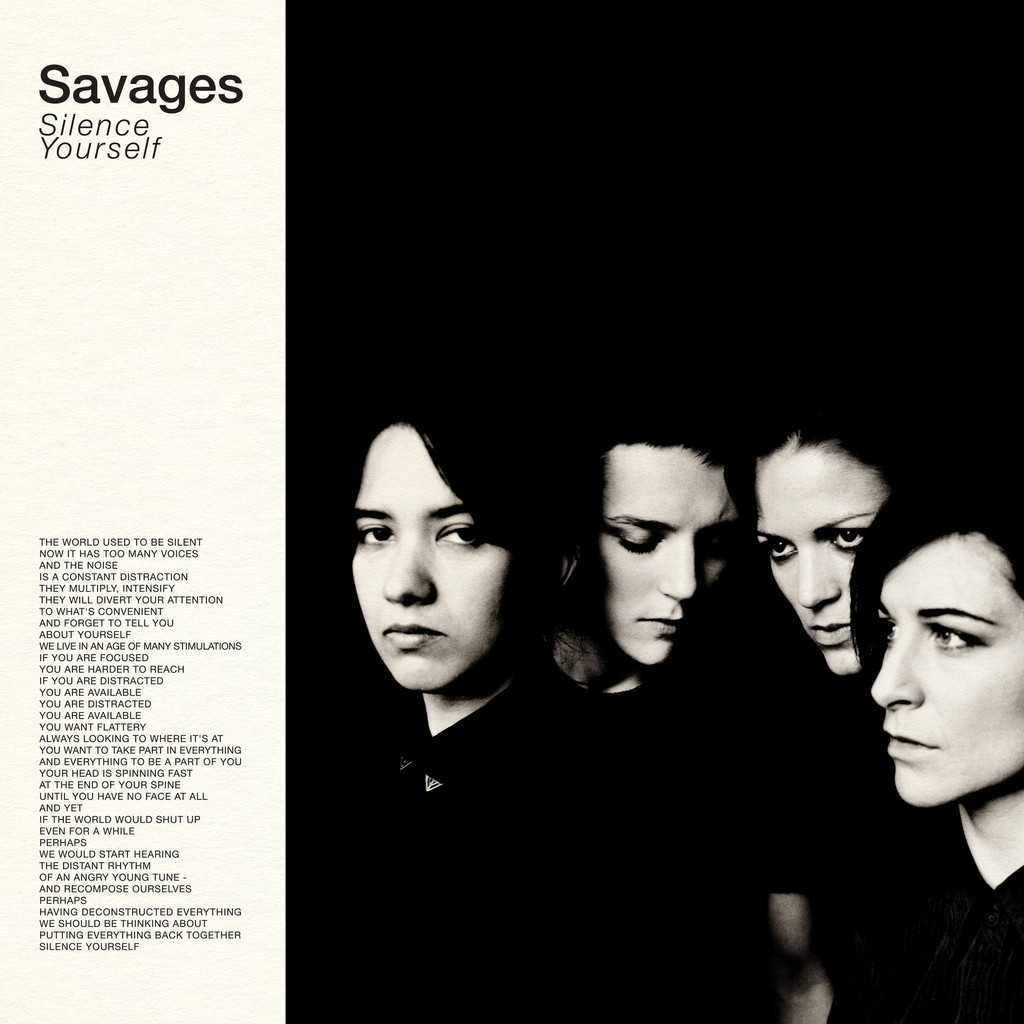Savages have declared war. Disturbances wrought by our “modern world” threaten to obscure our connection with our Selves. This is a war on distractions. The mission statement of Silence Yourself, worded in dour prose on the album’s cover, is clear: expose society’s illusions; liberate yourself from distraction; live again. If you listen closely, you will hear historic manifestos of Guy DeBord and Jean Baudrillard echoed in these life-affirming cries. And you might hear music too.
The “message” (ironically) detracts from what is actually a really great band. But the principles eclipsing the London quartet’s unique musicianship and dynamic also shape them. Focus and awareness are paramount for the group as instrumentalists. Gemma Thompson’s razor-edged riffs, whetted by the furrow of Ayse Hassan’s bass lines, whittle opener “Shut Up” and standout single “She Will” in a methodical fashion. Jehnny Beth’s unnerving shrill is the commanding center piece.
Each track here is a deliberate exercise in concision. In that regard comparisons to post-punk architects like Wire and Siouxsie and the Banshees are not without merit. The common denominator is the minimalist approach to composition: make it poignant, lean, no-bullshit. Each instrument is voluminous and lucid. There is no time wasted, no sound or word without purpose.
The manner in which Savages reject distraction is double-edged. There is a taste of violence in this dissent of a kind of bourgeois excess, contained in the album’s fight-or-flight intensity, but there is also something zen-like about rejecting distractions in order to find onesself. “Dead Nature” ends the first side with a silence as morbid as it is tranquil. “Marshall Dear” closes the album with a rich sonic palette; Beth’s smokey piano draws you in before the chorus bursts with a forboding shockwave – “silence yourself,” she howls.
The album is on the offensive not only ideologically but sonically as well. The punishing crunch of “City’s Full” recalls the guitar work of a Raw Power-era Stooges. Beth’s haunting voice is imbued with the satanic tremor of a young Diamanda Galas. Likewise, her candid, lyrical images of the taboo are meant to challenge. Beth draws from the public humiliation of a pornogrphic actress and subverts the victim complex on the masochistic “Hit Me.” The album’s neurotic bent makes it more disquieting than cathartic, but such a concession is characteristic of transgressive art.
Silence Yourself is not meant to be easygoing. It does lose momentum at times when it takes itself too seriously (“Waiting for a Sign”). And moments like these, though few and far between, raise the question of whether the album is all spectacle or if it’s the real thing. Since Savages have cultivated such a politicized aesthetic, it’s hard to divorce the concept behind the art from the art itself, but Silence Yourself delivers if you are willing to submit to its unflinching authority.

